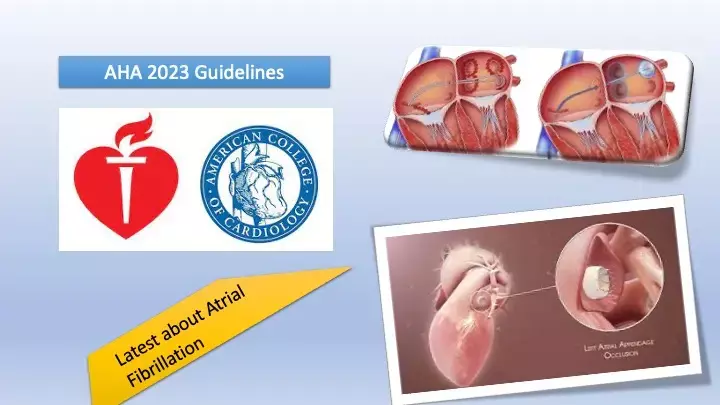- Home
- Medical news & Guidelines
- Anesthesiology
- Cardiology and CTVS
- Critical Care
- Dentistry
- Dermatology
- Diabetes and Endocrinology
- ENT
- Gastroenterology
- Medicine
- Nephrology
- Neurology
- Obstretics-Gynaecology
- Oncology
- Ophthalmology
- Orthopaedics
- Pediatrics-Neonatology
- Psychiatry
- Pulmonology
- Radiology
- Surgery
- Urology
- Laboratory Medicine
- Diet
- Nursing
- Paramedical
- Physiotherapy
- Health news
- Fact Check
- Bone Health Fact Check
- Brain Health Fact Check
- Cancer Related Fact Check
- Child Care Fact Check
- Dental and oral health fact check
- Diabetes and metabolic health fact check
- Diet and Nutrition Fact Check
- Eye and ENT Care Fact Check
- Fitness fact check
- Gut health fact check
- Heart health fact check
- Kidney health fact check
- Medical education fact check
- Men's health fact check
- Respiratory fact check
- Skin and hair care fact check
- Vaccine and Immunization fact check
- Women's health fact check
- AYUSH
- State News
- Andaman and Nicobar Islands
- Andhra Pradesh
- Arunachal Pradesh
- Assam
- Bihar
- Chandigarh
- Chattisgarh
- Dadra and Nagar Haveli
- Daman and Diu
- Delhi
- Goa
- Gujarat
- Haryana
- Himachal Pradesh
- Jammu & Kashmir
- Jharkhand
- Karnataka
- Kerala
- Ladakh
- Lakshadweep
- Madhya Pradesh
- Maharashtra
- Manipur
- Meghalaya
- Mizoram
- Nagaland
- Odisha
- Puducherry
- Punjab
- Rajasthan
- Sikkim
- Tamil Nadu
- Telangana
- Tripura
- Uttar Pradesh
- Uttrakhand
- West Bengal
- Medical Education
- Industry
Latest AF guidelines endorses early rhythm control, upgrade LAAO status-AHA

The "2023 ACC/AHA/ACCP/HRS Guidelines for the Diagnosis and Management of Patients With Atrial Fibrillation" have been recently released to provide recommendations to guide clinicians in the treatment of patients with atrial fibrillation. The current update provides a new staging system, an emphasis on early rhythm control, and has upgraded recommendations for catheter ablation and left atrial appendage occlusion (LAAO), among various other recommendations. The guideline document in now available in online format of JACC journal.
Over the past decade, advancements in understanding the AF disease process, recognizing its complexity beyond a mere rhythm abnormality, and developments in treatment technologies have emerged.
Compared to the previous AF classification that focused solely on rhythm and its duration, the guideline describes a new classification system that goes beyond AF duration. The system comprises four broad stages, emphasizing risk factor management at each step:
Stage 1: At risk for AF (presence of risk factors associated with arrhythmia)
Stage 2: Pre-AF (evidence of structural or electrical findings making a patient susceptible to AF)
Stage 3: AF (encompassing patients with paroxysmal, persistent, and long-standing persistent AF, as well as those who have undergone successful catheter ablation)
Stage 4: Permanent AF (no further attempts at rhythm control after discussion between the patient and clinician)
The guideline places a key emphasis on early rhythm control. Research, such as EAST-AFNET 4, indicates that early intervention against AF helps prevent downstream cardiovascular events.
The guideline also elevates the status of catheter ablation as a rhythm control strategy. While previously considered a class 2a recommendation, it now carries a class 1 recommendation.
In selected patients, especially younger individuals with fewer comorbidities, ablation is endorsed as a first-line therapy to improve symptoms and reduce disease progression. This strengthened recommendation is supported by trials like EARLY-AF and its extended follow-up study PROGRESSIVE-AF, demonstrating ablation's superiority over drug therapy for rhythm control.
In the realm of interventions, Left Atrial Appendage Occlusion (LAAO) has undergone an upgrade, transitioning from a class 2b to a class 2a indication for patients with a moderate-to-high risk of stroke and a contraindication to long-term oral anticoagulation.
The other key takeaways from the latest guidelines are:
1. AF Risk Factor Modification and Prevention: Instead of generic recommendations such as weight loss and increased exercise, clinicians can refer to class 1 guideline recommendations suggesting that patients with overweight or obesity aim to lose at least 10% of body weight to alleviate AF symptoms, burden, recurrence, and progression to persistent AF.
The guideline also advocates a weekly target of 210 minutes of moderate-to-vigorous exercise to enhance AF outcomes, functional capacity, and quality of life.
2. Catheter Ablation in Heart Failure with Reduced Ejection Fraction: In patients with heart failure and reduced ejection fraction, catheter ablation receives a Class 1 indication based on recent studies highlighting its superiority over drug therapy for rhythm control.
3. AF in Medical Illness or Surgery: Emphasis is placed on the risk of recurrent AF when discovered during noncardiac illness or surgery, with specific recommendations provided for this scenario.
4. Updated Recommendations for Device-Detected AF: More detailed recommendations are provided for patients with device-detected AF, considering episode duration and the patient's thromboembolism risk, including insights from implantable devices and wearables.
Source: JACC J Am Coll Cardiol. Nov 30, 2023. Epublished DOI: 10.1016/j.jacc.2023.08.017
MBBS, MD , DM Cardiology
Dr Abhimanyu Uppal completed his M. B. B. S and M. D. in internal medicine from the SMS Medical College in Jaipur. He got selected for D. M. Cardiology course in the prestigious G. B. Pant Institute, New Delhi in 2017. After completing his D. M. Degree he continues to work as Post DM senior resident in G. B. pant hospital. He is actively involved in various research activities of the department and has assisted and performed a multitude of cardiac procedures under the guidance of esteemed faculty of this Institute. He can be contacted at editorial@medicaldialogues.in.
Dr Kamal Kant Kohli-MBBS, DTCD- a chest specialist with more than 30 years of practice and a flair for writing clinical articles, Dr Kamal Kant Kohli joined Medical Dialogues as a Chief Editor of Medical News. Besides writing articles, as an editor, he proofreads and verifies all the medical content published on Medical Dialogues including those coming from journals, studies,medical conferences,guidelines etc. Email: drkohli@medicaldialogues.in. Contact no. 011-43720751


